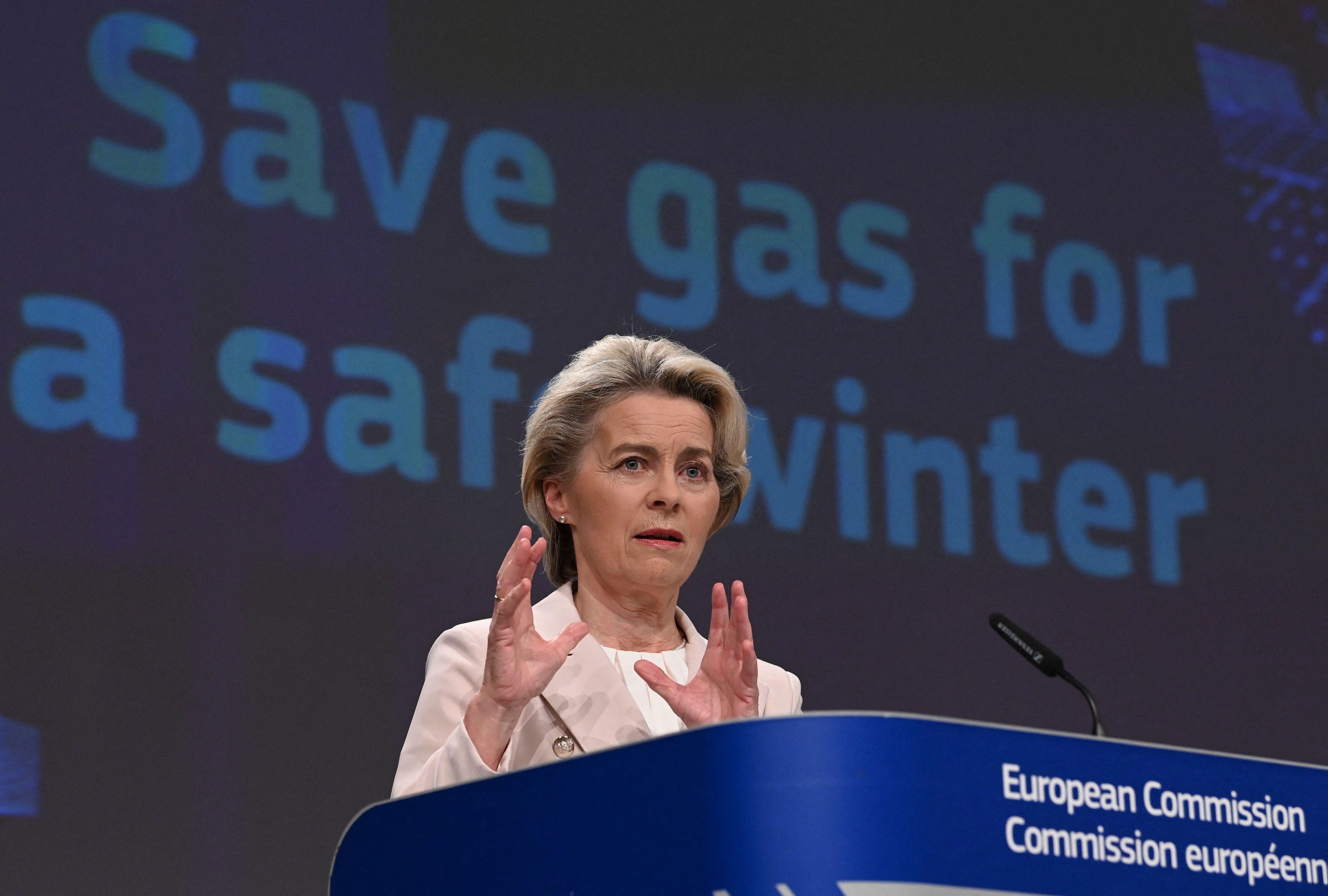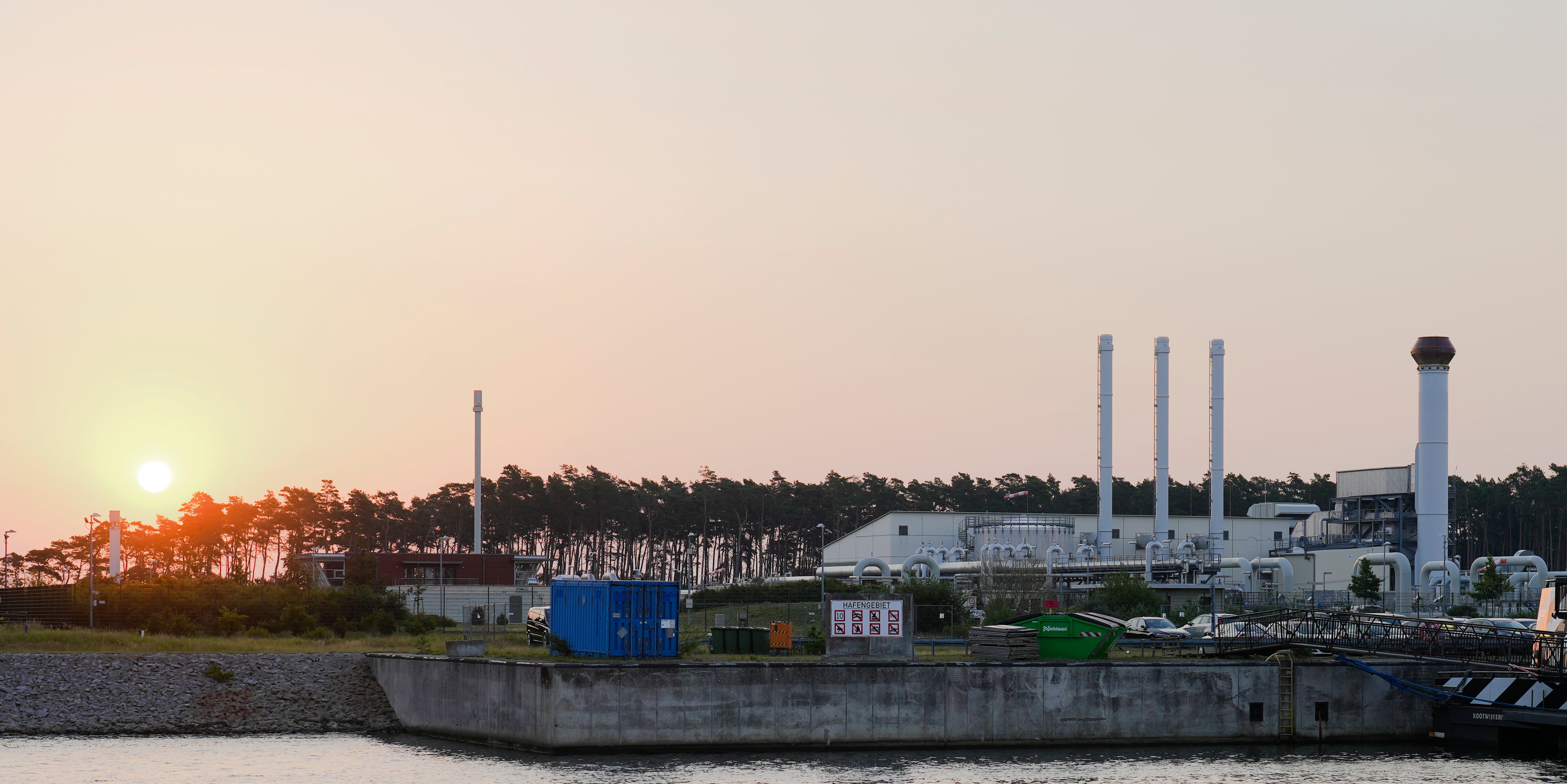EU agrees to cut gas use over fears of Russian freeze-out
Deal reached hours after Moscow further slashed energy supplies


The European Union has agreed to cut gas consumption over fears the current level of demand leaves countries exposed to Russian supply disruption.
Ahead of talks in Brussels, European Commission president Ursula von der Leyen warned member states to work on the assumption Russia would cut supplies completely to pressure the bloc to lift sanctions brought against Vladimir Putin’s regime for waging war in Ukraine.
The deal struck on Tuesday aims to bolster European energy security over winter by requiring member states to cut 15 per cent of demand against their average consumption over the past five years by 31 March 2023.
Ministers hailed the agreement as proof of a Europe united against Russian threats, though exemptions to the target were included after protests by members less reliant on Moscow for energy.
Josef Sikela, Czech energy minister, said: “Today’s decision has clearly shown the member states will stand tall against any Russian attempt to divide the EU by using energy supplies as a weapon.”
He added: “Saving gas now will improve preparedness. The winter will be much cheaper and easier for EU’s citizens and industry.”
Ms von der Leyen welcomed the move, saying “the EU has taken a decisive step to face down the threat of a full gas disruption by Putin”.

Hours before European energy ministers met to thrash out the deal, Ukrainian president Volodymyr Zelensky accused Mr Putin of waging a “gas war” on Europe after Russia further cut back supplies on the biggest pipeline serving the continent.
“The gas blackmail of Europe, which only gets worse every month, is needed by a terrorist state to make the life of every European worse,” said Mr Zelensky in his nightly address on Monday.
Russian state energy company Gazprom said another turbine powering the Nord Stream 1 pipeline to Germany would be turned off, cutting the pipe’s daily capacity to 33 million cubic metres from Wednesday.
That is half the current level, already only 40 per cent of normal capacity, while pipelines to southern parts of Europe have been totally cut off. In the year before the war, Europe imported about 40 per cent of its gas from Russia.

The EU said the energy supplier’s latest move was politically motivated and accused Russia of energy blackmail.
Gazprom said maintenance work that earlier stemmed supplies on the pipeline could not be completed as a Canadian delivery of parts had stalled due to Western sanctions. It added that Canada had not provided assurances the parts would be compatible.
Tuesday’s negotiations in Brussels were beset by differing levels of enthusiasm for restrictions across the EU, with countries less dependent on Russian energy such as Spain and Portugal objecting to what Lisbon called an “untenable” target.
The two countries noted they use very little Russian gas compared with countries such as Germany and Italy and that there are scant energy connections linking them to the rest of Europe.
Ms Von der Leyen had argued on Monday that regardless of energy ties all EU states are deeply economically connected. “Even member states that hardly purchase any Russian gas cannot escape the effects of a potential supply stop on our internal market,” she told German news agency dpa.

Russia’s invasion of Ukraine in February sent the Western world scrambling for alternative energy suppliers as already high gas and oil prices were sent soaring. The EU agreed in March to phase out Russian gas “as soon as possible” but despite Tuesday’s deal uncertainty remains over Europe’s energy future.
The US and EU have announced a plan to form a task force to cut Europe’s reliance on Russian fossil fuels, including oil, of which Russia last year provided 30 per cent of EU supplies.
Washington has also boosted gas supplies to the EU at a faster rate than expected, though even if the target of 50bn cubic metres per year were met Europe would still be more than 100bn cubic metres short of replacing the pre-war Russian supply. Talks with other producers such as Egypt and Israel have been positive but supply deals are yet to be agreed.
Early in July, Mr Putin warned Russian energy companies to prepare for the coming Western embargo on Russian imports, adding that the Kremlin was looking to boost supply to “friendly countries”.
Hours before the announcement of the latest Nord Stream cut, Gazprom said it had exported the highest ever daily volume of gas to China on its Power of Siberia pipeline.
Join our commenting forum
Join thought-provoking conversations, follow other Independent readers and see their replies
Comments
Bookmark popover
Removed from bookmarks